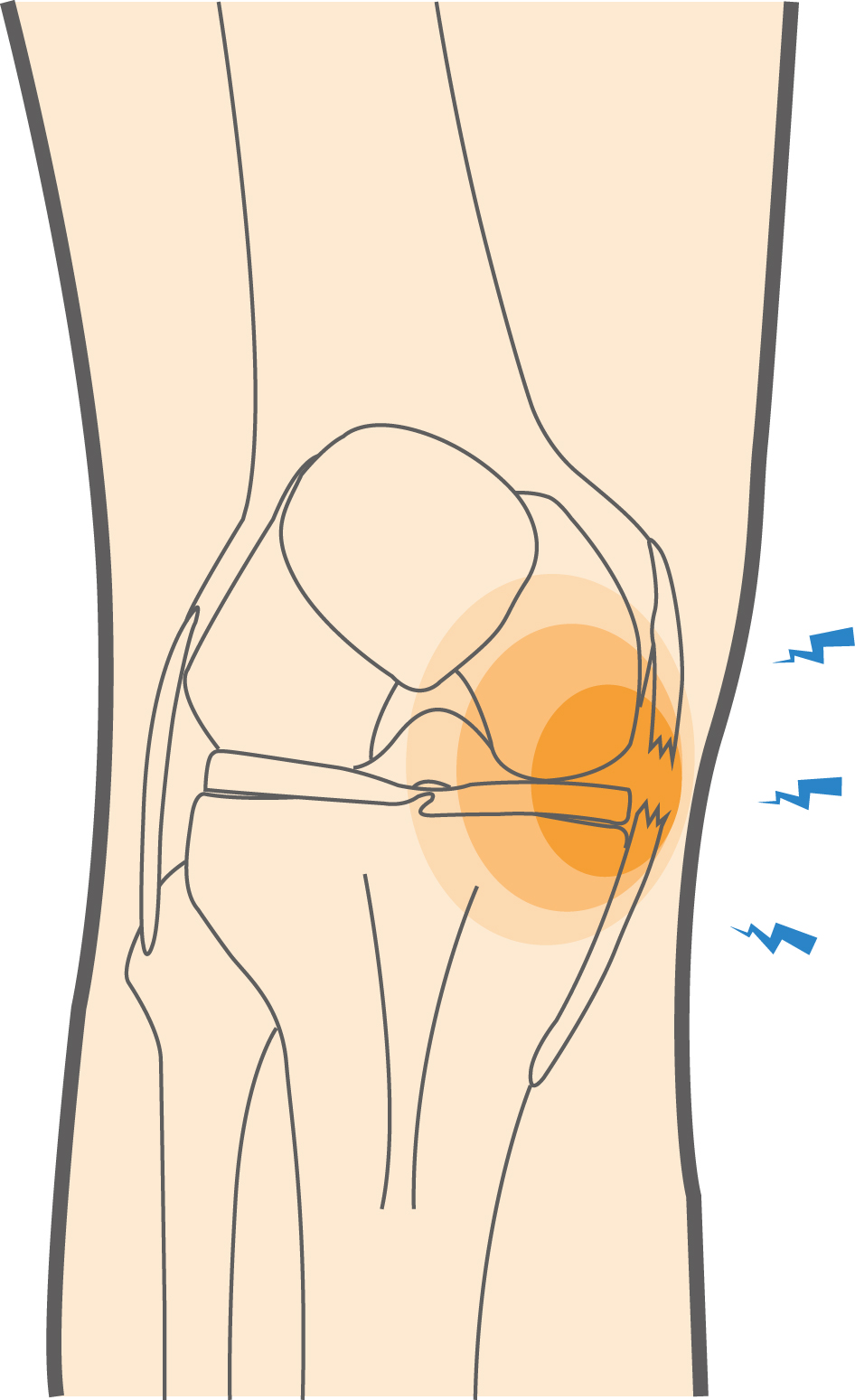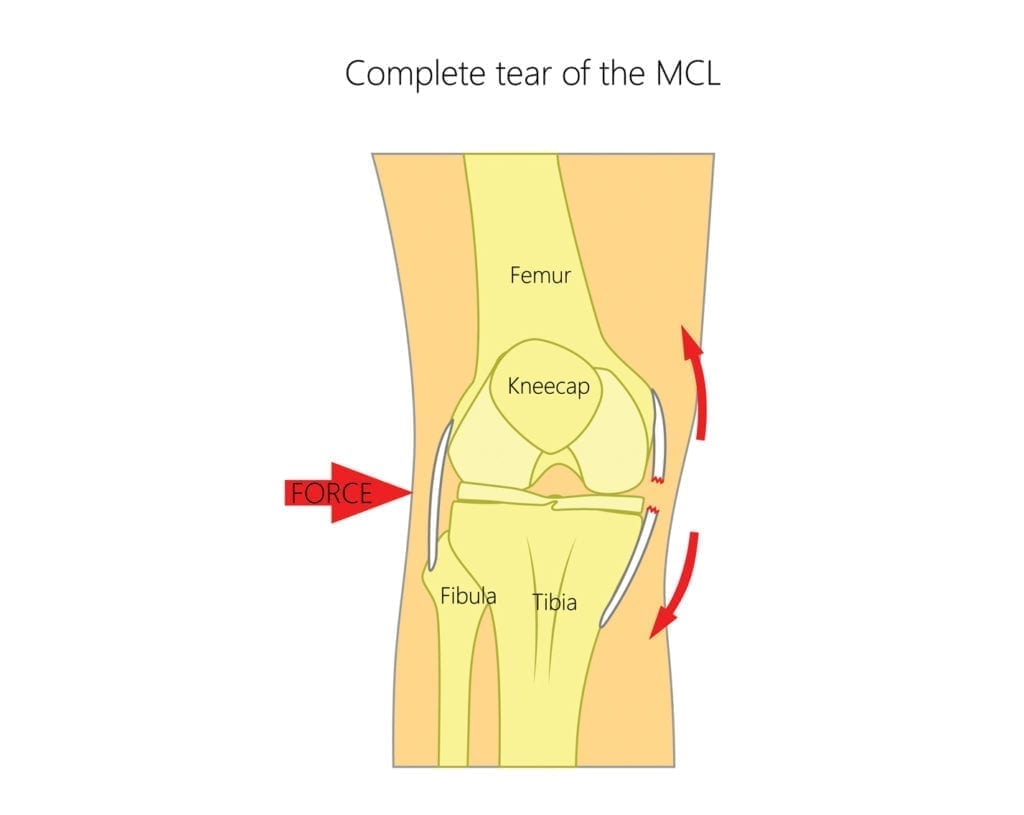The medial collateral ligament, or MCL, is the most commonly injured ligament in the knee. It runs along the inner side of the knee and connects at the thigh bone and the shin bone. The MCL is responsible for stabilizing the knee and preventing it from overextending inward. Sometimes, an injury to the knee can result in stretching of the MCL that leaves the ligament intact, or the MCL can partially or completely tear.
MCL tears are classified by grades, depending on the severity of the injury:
• Grade I: The MCL is stretched, but not torn.
• Grade II: The MCL is partially torn.
• Grade III: The MCL is completely torn through.



